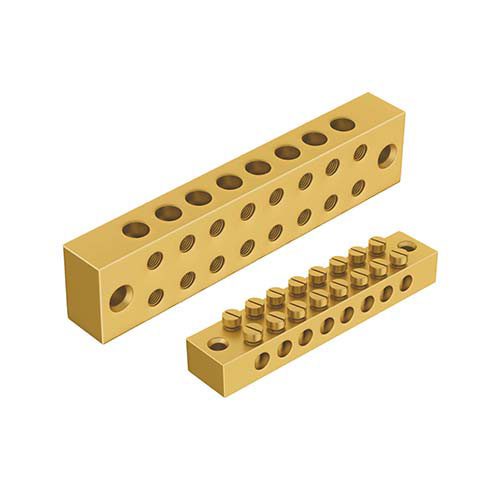Everything You Need to Know About Earth Blocks

Characteristics of Earth Block
Earth Blocks are made by mixing soil, clay, sand, and straw together, along with water. The mixture is then compressed into blocks using a machine or by hand. The blocks are then dried in the sun or baked in a kiln to harden them. These blocks are available in different sizes and shapes, ranging from small bricks to large blocks.
One of the key characteristics of Earth Blocks is their sustainability. They are made from natural, locally-sourced materials, which means they have a low carbon footprint. Additionally, they have good insulation properties, which makes them ideal for use in areas with extreme temperatures. They are also non-toxic and do not release harmful chemicals into the environment.
Another characteristic of earth blocks is their durability. When properly made, these blocks can last for hundreds of years. They are also resistant to fire, pests, and water damage, making them ideal for use in areas prone to natural disasters such as floods and earthquakes.
Benefits of Earth Block
The benefits of using earth blocks are numerous. For one, they are cost-effective. Since they are made from natural materials that are readily available, they are often cheaper than traditional building materials such as concrete and brick. Additionally, since they can be made on-site, transportation costs are minimized.
Another benefit of earth blocks is their thermal properties. They have good insulation properties, which means they can keep buildings cool in the summer and warm in the winter. This, in turn, reduces the need for heating and cooling systems, which can lead to significant energy savings.
Earth blocks are also easy to work with. They can be cut, shaped, and drilled using traditional tools, which makes them a versatile option for builders. They can also be finished with plaster, paint, or other decorative finishes, which means they can be customized to fit any design aesthetic.
Finally, earth blocks are environmentally friendly. Since they are made from natural materials and do not require the use of fossil fuels, they have a low carbon footprint. Additionally, since they are durable, they do not contribute to landfill waste.
Applications of Earth Block
Earth blocks can be used in a wide range of building applications. They are ideal for use in regions with a shortage of traditional building materials or in areas where building with concrete or brick is not feasible.
Residential buildings, such as homes, apartments, and townhouses
Commercial buildings, such as offices, retail stores, and restaurants
Industrial buildings, such as warehouses and factories
Agricultural buildings, such as barns, stables, and storage facilities
Educational buildings, such as schools and universities
Infrastructure projects, such as bridges, retaining walls, and culverts
In conclusion, earth blocks offer a sustainable and cost-effective option for builders looking for environmentally friendly building materials. Their durability, insulation properties, and versatility make them ideal for use in a wide range of building applications. As the construction industry continues to prioritize sustainability, earth blocks are likely to become an increasingly popular choice for builders and homeowners alike.




